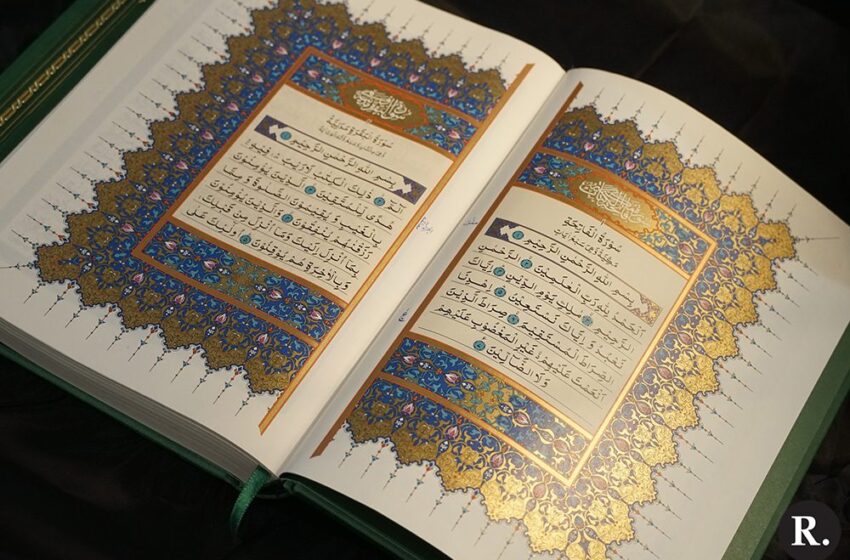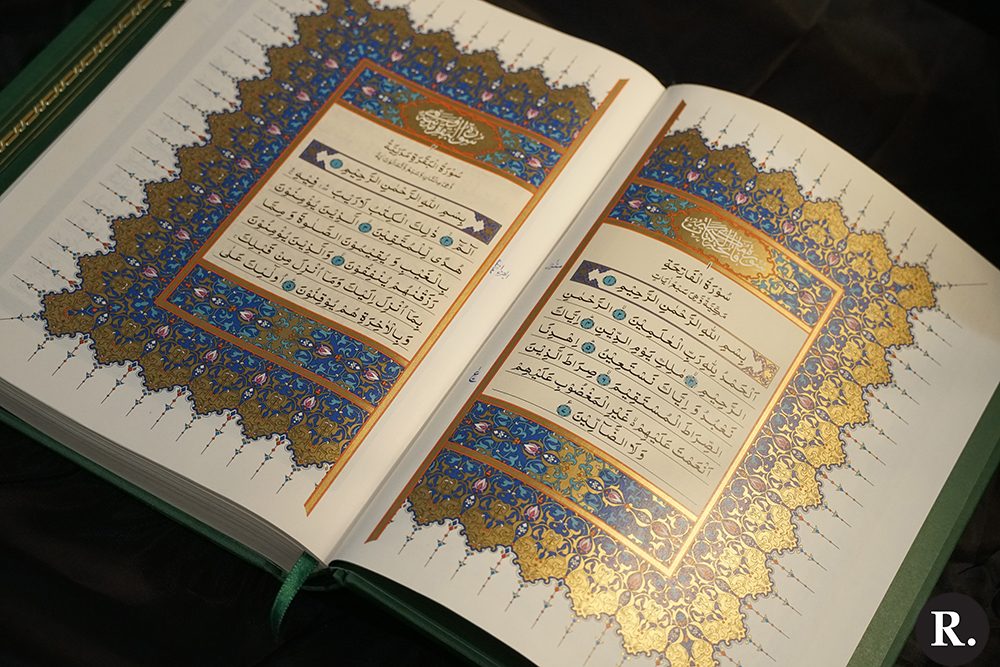
Al-Tafsīr Al-Kabīr: The Grand Exegesis – Part 11

EXCLUSIVE SERIALATION
We proudly present the first full English translation of the commentary of Chapter 113, Sūrah al-Falaq, by Hazrat Mirza Bashiruddin Mahmud Ahmad (ra) in his magnum opus: Al-Tafsīr Al-Kabīr – The Grand Exegesis
In the previous edition we explored certain meanings of al-Falaq.
In this edition, we look at three further meanings.
Translated by Murtaza Ahmad
Edited by The Review of Religions Translation Team.
The fifth meaning of al-Falaq is a wooden apparatus that stands criminals up in rows. In light of these meanings, the words قُلْ أَعُوذُ بِرَبِّ الْفَلَقِ * مِنْ شَرِّ مَا خَلَقَ signify: ‘I seek refuge with the Master of prisons that it not be the case that I am imprisoned and made to endure its difficulties and hardships.’
Thus, we are taught here a prayer both on the communal level and individually, which is that we must pray that our people are prevented from fighting amongst themselves and from suffering the hardship caused by casting one another into prison cells. Or let it not be that a hostile power arises against the Muslims and destroys the Islamic government, which leads to their being imprisoned, thus bringing to an end an era of peace for the Muslims.
Similarly, on an individual level we are instructed to pray that we not say something, either intentionally or unintentionally, as a consequence of which we should have to face the hardship of prison and captivity. Man can be saved from such hardship only by the God Who governs the hearts of all, and Who is the True Ruler, so that even if such a time comes, Allah Almighty may change the captors’ hearts and instead of being harsh they will treat you with gentleness.
The sixth meaning of al-Falaq is the remnant of milk that remains at the end of a cup after drinking. In light of these meanings, the words قُلْ أَعُوذُ بِرَبِّ الْفَلَقِ * مِنْ شَرِّ مَا خَلَقَ signify: ‘O God! You have bestowed upon me such a perfect teaching through the Holy Qur’ān that can be likened to a cup filled with milk. Do not let it be that due to my weaknesses, at some point I am left only with a small portion of that [perfect] teaching, and that I consequently become spiritually poor after enjoying spiritual wealth. It states in the ḥadīth that during the night of the Mʿirāj [in which the Holy Prophet (sa) spritually ascended to heaven], the Holy Prophet (sa) was presented with milk, water and wine. The Holy Prophet (sa) chose the milk. Upon this Gabriel (as) said: ‘O Messenger of Allah! Had you chosen the water or wine, your Ummah [the Muslims] would have been destroyed. By choosing the milk, you have acted according to the purest form of human nature. Thus, milk refers to the teachings of the Holy Qur’ān which are in accord with human nature. Therefore, it is stated in: قُلْ أَعُوذُ بِرَبِّ الْفَلَقِ * مِنْ شَرِّ مَا خَلَقَ that the Muslims should pray that Allah Almighty enables them to fully act upon the teachings of the Holy Qur’ān and that they continue safeguarding this teaching, lest some time in the future, they abandon its practice and become like one who is left with the remnants of milk. In this world, when one becomes poor after being wealthy, he suffers much anguish and life becomes intolerable for him. Therefore, even on an individual level, the prayer taught here is, ‘O God, let it not be that one is deprived of divine favours, and of the means by which one lives a life of peace and security, which would make the days of one’s life harder to endure.’
It indicates further that it should not be the case that the Muslims who are prosperous because of Islam’s triumph, should then face hardship and that at some point, due to the collapse of a Muslim government they are left to wither away in pain and anguish. And if such a time does come upon the Muslims, then may Allah Almighty Himself come to their aid and create the provisions once again so that the Muslims’ state of weakness transforms into strength and the days of weakness change into days of glory.
The seventh meaning of al-Falaq is الأنهارُ [al-Anhar – rivers], and Rabb al-Falaq signifies ‘the Lord of the rivers.’ Considering this, the prayer taught in the words قُلْ أَعُوذُ بِرَبِّ الْفَلَقِ * مِنْ شَرِّ مَا خَلَقَ is ‘Say, I seek refuge with the Lord, the Creator of Rivers, lest I and my people are inflicted by difficulty because of them.’
It is clear that lands are well-irrigated through the rivers and mankind’s sustenance depends on them. If water flows into the rivers the way it should, and the rivers are channelled into canals which irrigate the land, they are beneficial to the country. But if the rivers overflow, then not only are the crops destroyed, but people also die through drowning. Thus, rivers are extremely beneficial and our lives depend upon them. However, when their harmful aspects manifest, these rivers, instead of being life-giving, become a means of ending life. In fact, such is the case with everything in the world; it has both benefit and harm. So Allah Almighty has explained that Muslims should continue to pray so that whatever Allah Almighty has bestowed on them – both in the material and spiritual sense – benefits them and that Allah Almighty Himself continues to protect them against its harms. Let it not be that their deep understanding of religion makes them arrogant and that they begin looking with contempt upon others. They should not think that what they have received through Allah Almighty is a result of their own capabilities.
The serialisation of Sūrah al-Falaq will continue in the next edition.



